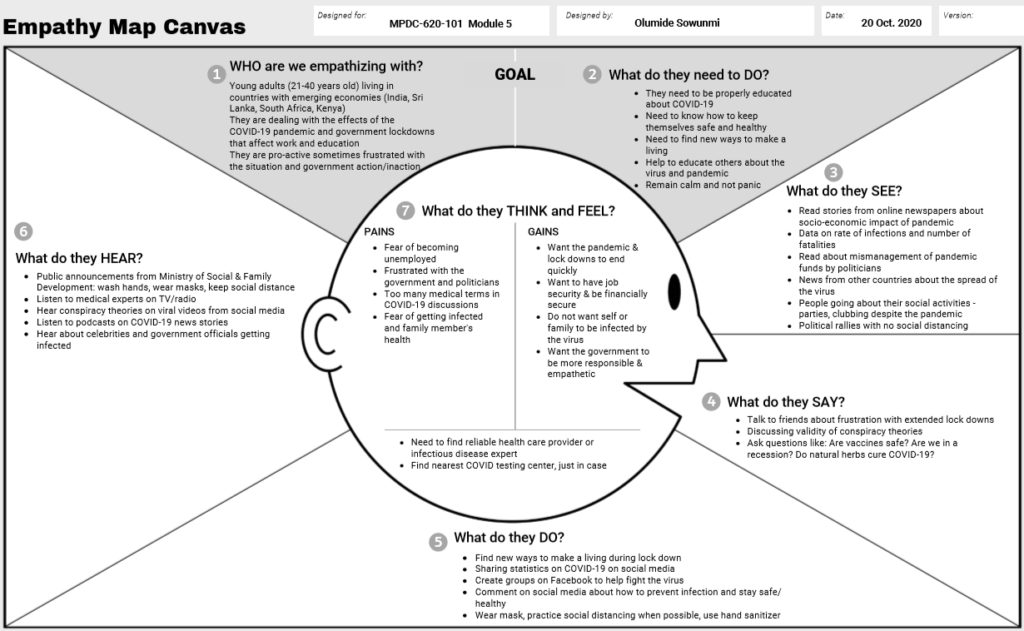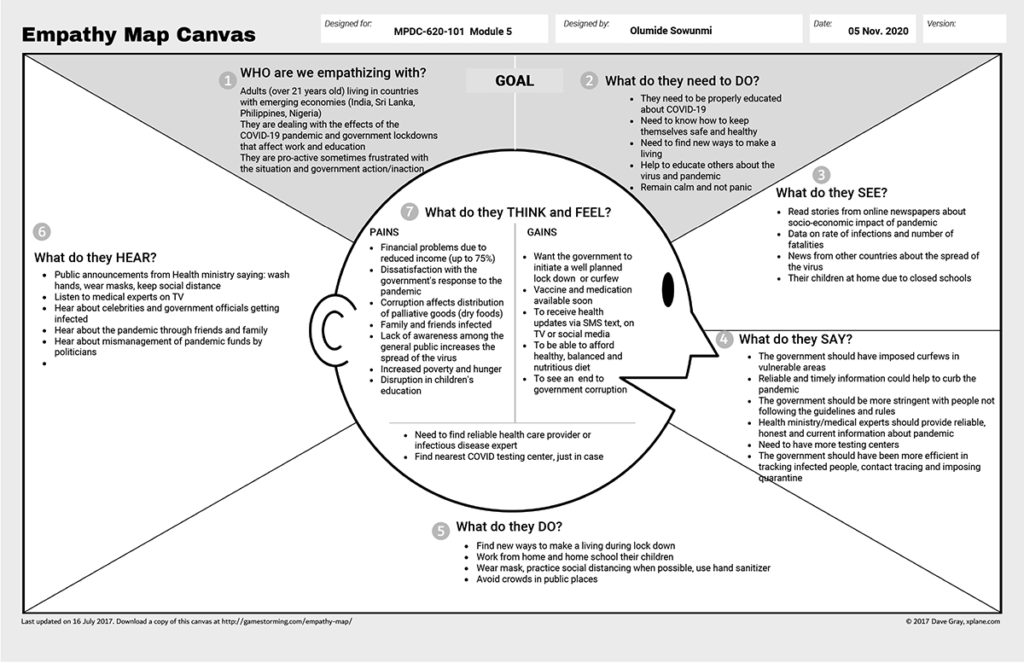Rather a bitter truth than a sweet lie – Russian Proverb
An inconvenient truth is often difficult to communicate. Nevertheless, I believe that it is always better to tell the truth, especially when it comes from people in authority. In terms of public health, telling the truth can even save lives.
The lack of reliable information pertaining to the COVID 19 pandemic has led to numerous unnecessary deaths and suffering. There have been so many conflicting statements even from people who are apparently qualified to know better. It has become difficult to know who to trust. This is especially true in countries with weak healthcare infrastructure.
In my project I intend to focus on adult populations in less developed countries because they are much more vulnerable to misinformation.
The purpose of this Pandemic Communications project is to prevent avoidable deaths and to give people a little bit more peace of mind during this devastating health crisis. It will also help to prevent a repetition of the confusion and misinformation in the future.
Where in the world?
After my preparatory research, the following countries were selected for a number of reasons. They have relatively good internet access and the language barrier was minimal because English was widely used, in parallel with local languages.
- India
- Sri Lanka
- Philippines
- Nigeria
Who in the world?
Using an empathy map before the actual ethnographic research required a lot assumptions about how people were affected by the pandemic. I did not really know the extent of the economic impact in those countries or the details of the disruption in their daily lives. Simply reading what people post on social media does not always give the full picture. One needs to interact with people directly to hear their stories.
My next step was to make some initial contact with people through Facebook, since this was the most convenient way to reach people in distant countries. Initially, South Africa and Kenya were on the list, however it turned out that the response to my messages was not very encouraging. There was much better response from the Philippines and Nigeria.
Among the participants perhaps the most remarkable was a single mother with 3 young children, living in the Philippines. She had to home school her children because the schools were closed and there was no such thing as online learning.Putting food on the table, with an unstable source of income was a struggle for her. There was also a business owner in Sri Lanka who had lost his entire business. In Nigeria, teachers were also finding it difficult to adjust, schools were shutdown and remote learning was not an option.
Empathy Map – Before Research
Empathy Map – After Research
Summary of ethnographic research
Preferred Communications Media
Television is one of the most common preferred means of communicating public health information. Others include SMS text and Social Media.
Design Solution Stakeholders
In each country, the government, local authorities like the Health Ministry and Medical Organizations need to be involved when designing a pandemic communications system. This is because people still trust these institutions. However, due to extant corruption, the government cannot be expected to always do the right thing.
Effects of Current Pandemic
The ongoing COVID-19 pandemic has seriously lowered family income levels (up to 75%), leading to more poverty and hunger. People cannot always afford internet access and electricity supply is not always guaranteed. Education has been disrupted as parents struggle to home school their children. Perhaps the solution should include information on how to remain productive during a lock down e.g. how to work from home, how to run delivery services and even tips on mental health.
Other Related Wicked Problems
Any proposed solution will not solve other connected wicked problems e.g. poverty, wealth inequality and corruption. Rather, the design should navigate the landscape and create a path around those wicked problems to reach the desired outcome. It is helpful to learn from other organizations that are able to function in similar environments e.g. NGOs like Gates Foundation, WHO, International Red Cross and Doctors without Borders. They tend to be independent, neutral and impartial. Preferably, there should be no funding from governments or other vested interests.
Survey Questions
Survey Monkey questionnaire
Q1 What country are you located?
Q2 What is your primary source of information on COVID-19?
Q3 What do you think is the best way to prevent COVID-19?
Q4 How satisfied are you with the Government’s response to COVID-19?
Q5 What could have been done to improve the response to COVID-19 in your country?
Q6 How do you prefer to get public health related information
Q7 Do you wear a mask and practice social distancing?
Q8 Do you think that more public awareness can slow the spread of COVID-19?
Q9 Do you think there should be one source of truth about COVID?
Q10 How has the pandemic affected your job, school or business?



Leave a Reply